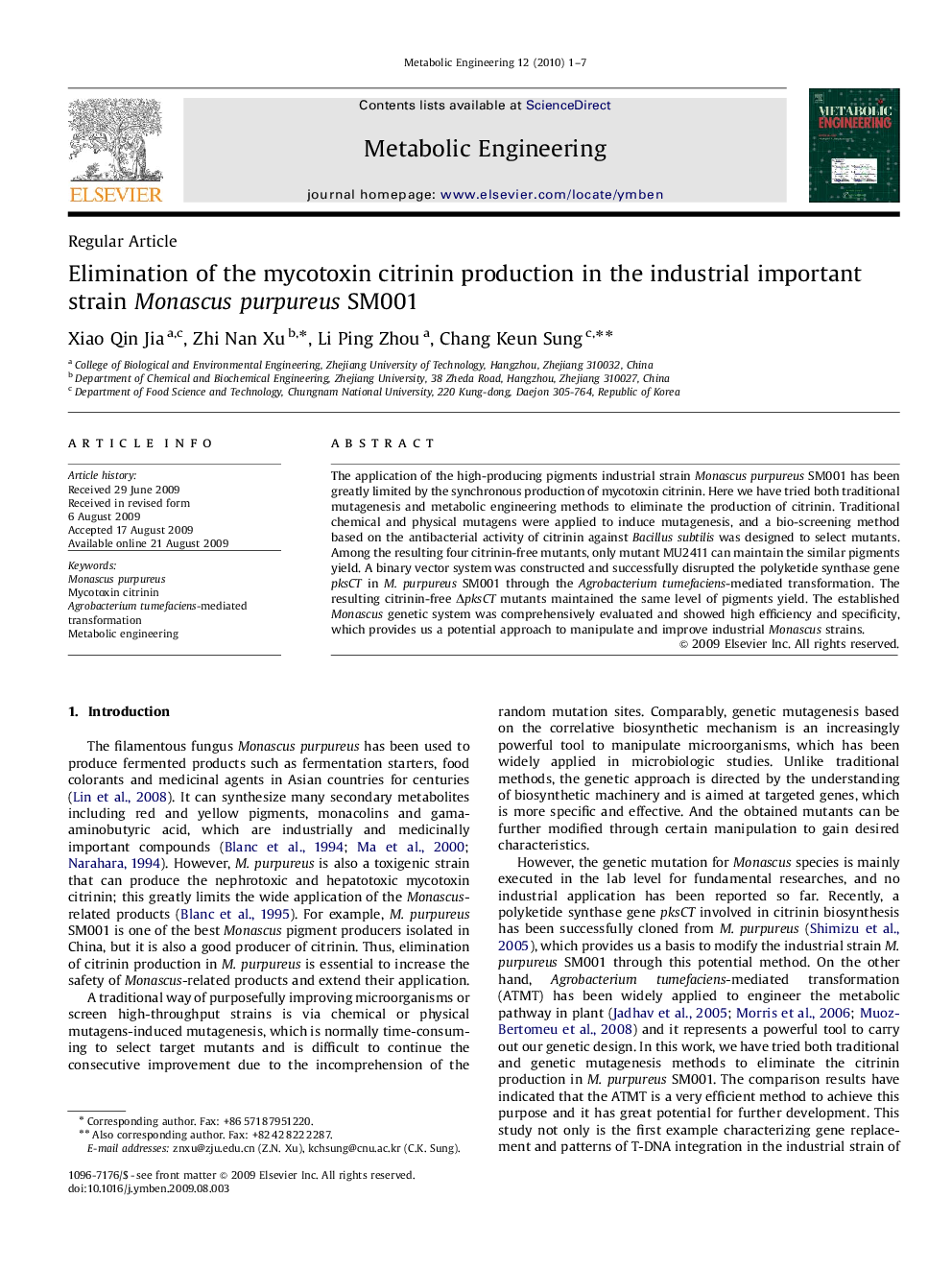| Article ID | Journal | Published Year | Pages | File Type |
|---|---|---|---|---|
| 31755 | Metabolic Engineering | 2010 | 7 Pages |
The application of the high-producing pigments industrial strain Monascus purpureus SM001 has been greatly limited by the synchronous production of mycotoxin citrinin. Here we have tried both traditional mutagenesis and metabolic engineering methods to eliminate the production of citrinin. Traditional chemical and physical mutagens were applied to induce mutagenesis, and a bio-screening method based on the antibacterial activity of citrinin against Bacillus subtilis was designed to select mutants. Among the resulting four citrinin-free mutants, only mutant MU2411 can maintain the similar pigments yield. A binary vector system was constructed and successfully disrupted the polyketide synthase gene pksCT in M. purpureus SM001 through the Agrobacterium tumefaciens-mediated transformation. The resulting citrinin-free ΔpksCT mutants maintained the same level of pigments yield. The established Monascus genetic system was comprehensively evaluated and showed high efficiency and specificity, which provides us a potential approach to manipulate and improve industrial Monascus strains.
